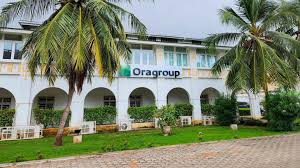According to information obtained by Financial Afrik, no recapitalization or sale file has yet been officially submitted to the Central Bank of West African States (BCEAO) or the banking commission. “In any case, as far as the increase in capital is concerned, the subsidiaries will submit their files separately,” confides an internal source close to the regulator, specifying that the chosen architecture will be fragmented rather than consolidated. This requirement follows the decision of the UMOA Council of Ministers on December 21, 2023 in Cotonou to increase the minimum capital of banks from 10 to 20 billion CFA francs, a reform that is set to come into effect at the beginning of the year and requires each institution to submit its own compliance file.
Behind the scenes, the group based in Lomé, which brings together a dozen regional subsidiaries, is engaged in intense negotiations. The sticking point remains the valuation: the departing historical shareholders – Emerging Capital Partners (ECP), Proparco and other minority shareholders – have finally admitted that they will have to lower their demands. In other words, they will have to sell their shares at a substantial discount, far from the valuations initially projected during the failed IPO in 2018. As a reminder, the ECP fund (Emerging Capital Partners) – historical controlling shareholder of Oragroup, partially exited in 2019 in favor of IPS-CGRAE (Ivory Coast), while remaining a shareholder; the operation also involved partial sales of Proparco, DEG, BIO and BOAD. Following the rejection of the buyout plan proposed by Vista Group for 61% of the capital and the departure of Vincent Le Guennou from the presidency, the process seems to have opted for other scenarios.
Weakened by several difficult years, Oragroup was in a critical situation two years ago, with equity ratios dangerously close to regulatory minimums. But the dynamic has slightly reversed: according to its financial statements, Oragroup achieved a net banking income of nearly 170 billion CFA francs in the first half of 2025, up 12% from the previous year, with a consolidated net profit of around 18 billion CFA francs. A glimmer of hope that suggests a potential recovery, provided that the recapitalization, estimated by some sources at between 80 and 100 billion CFA francs, materializes quickly. The equation remains both political and financial: to preserve the regional anchorage of the group, reassure regulators, and convince new investors to bet on a bank that, despite its past turbulence, remains a systemic player in the West African banking landscape.


